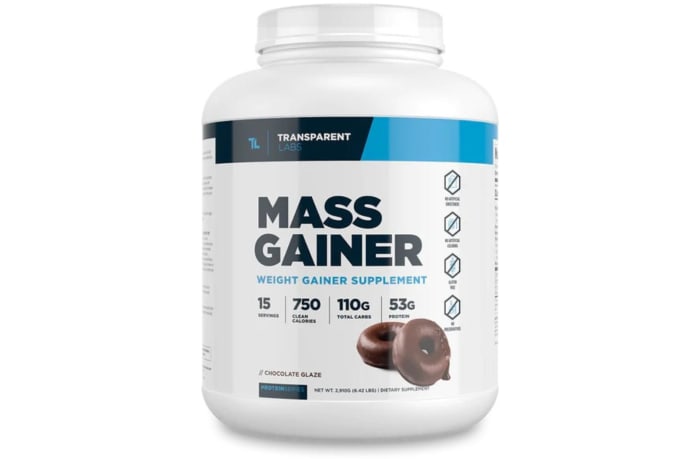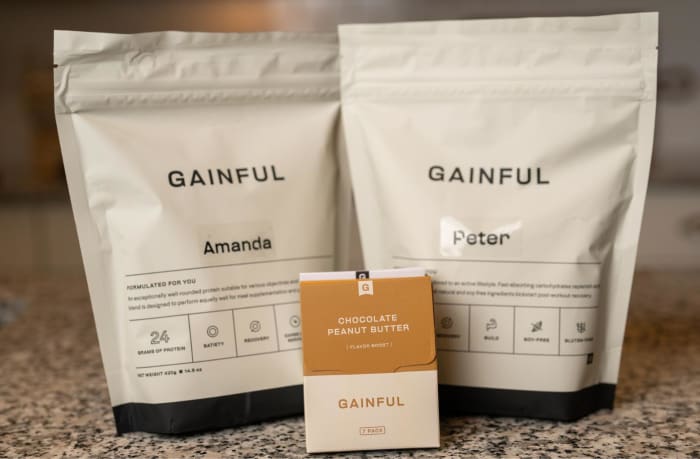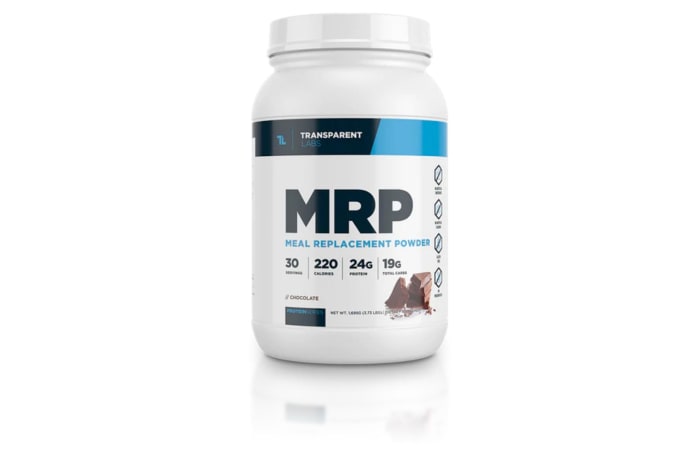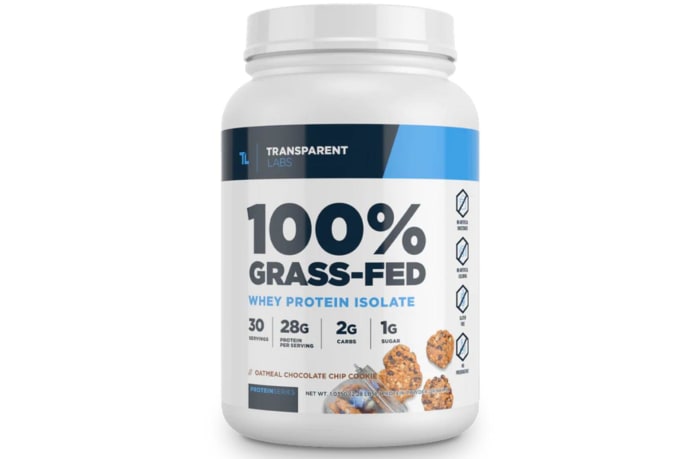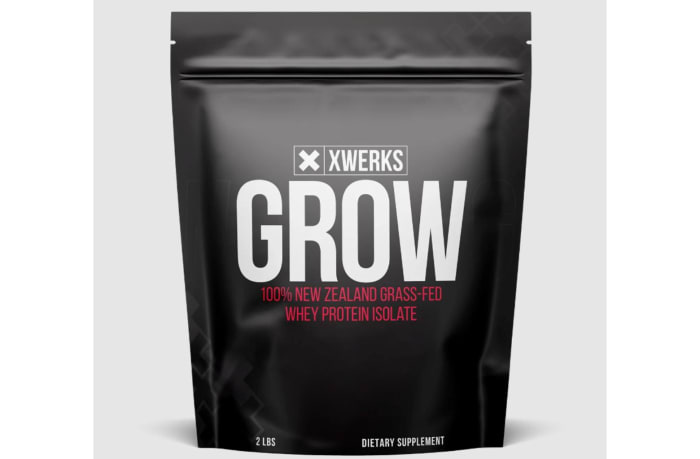The products featured in this article have been independently reviewed. When you buy something through the retail links on this page, we may earn commission at no cost to you, the reader. Sports Illustrated editorial staff are not involved in the creation of this content. Learn more here.
When you start a health journey and begin learning about nutrition, the importance of protein is often the first thing that you’ll hear. Why? Protein is one of the three macronutrients—building blocks for the body found in common foods that we need to survive. The most common forms of protein come from animal and plant food sources like eggs, meats, fish, edamame, beans and quinoa.
But what if you’re looking to increase the amount of protein you eat each day to reach your goals? Protein powders, protein bars and other protein supplements can be useful additions to a healthy diet. However, it can be confusing standing at the grocery store unsure of what to purchase. That's why we're breaking down the dietary differences between supplements and foods that contain either whey protein concentrate or whey protein isolate.
You’ll learn what whey concentrate is and how it differs from whey isolate. Additionally, we’ll determine why they’re useful, break down our favorite products and reflect on exactly who will benefit the most from each kind of protein.
What Is Whey Protein?
Whey is a type of protein found in cow’s milk and dairy products. It makes up about 20 percent of cow milk's total protein. Another form of protein called casein makes up the remainder.
Humans have been consuming whey for thousands of years, but it has gained popularity in recent years, and is a common protein source in powders or other protein-filled food products. You’ll find this protein byproduct in milk, cheese and ice cream, to name a few examples. Typically, you won’t even realize that your food contains whey since it's naturally part of dairy products.
What Is Whey Concentrate?
Whey concentrate is a term used to signify a specific amount of whey protein present in food. When whey concentrate is identified in a food, it means that 25-80 percent of its weight is whey protein. This term is typically used for products that prioritize protein content so consumers can know exactly how much protein they’re getting and what kind of protein it is.
What Is Whey Isolate?
Whey isolate is a term that identifies a percentage of whey protein found in a product. Unlike whey concentrate, whey isolate refers to 90 percent or higher whey protein by weight. More processing steps are involved to produce whey isolate, and along the way it removes excess carbohydrates and fats. This is especially beneficial for lactose sensitive or intolerant individuals, as the resulting whey protein isolate will contain less than about one percent lactose.
Whey Concentrate vs Whey Isolate: Nutrition Facts
Regardless of the source, each gram of protein will contain four calories. Whether that protein comes from fish, chicken, beef or another source, the calories remain the same. However, there are other key nutritional differences between whey protein and whey isolate.
Whey concentrate is a byproduct of the cheesemaking process, and as a result, will be left with some carbohydrates, fat and lactose. On the other hand, the ultrafiltration process of whey isolate will remove most of these substances, leaving a protein that contains 90 percent or more whey.
According to the USDA, 100 grams of whey protein concentrate may have approximately 385 calories, 66.7 grams of protein, 18 grams of carbohydrate and 5.13 grams of total fat. On the other hand, 100 grams of a whey protein isolate is typically 350 calories and has 81.1 grams of protein, 5.4 grams of carbs and 2.7 grams of fat.
Whey Concentrate vs Whey Isolate: Benefits
Both whey concentrate and whey isolate offer health benefits and can help you achieve your fitness and/or nutrition goals. Generally speaking, protein is important for a wide range of functions in the body—everything from building and repairing muscle and bone, to curbing hunger and helping maintain a healthy body weight. Ultimately, consuming adequate dietary protein each day is key.
However, it's important to understand that the benefits of whey concentrate differ slightly from the benefits of whey isolate. Whey isolate is an even more concentrated form of whey protein and has little lactose content, as well as fewer carbohydrates and fats. As a result, it can be a better option for those wanting protein without additional macronutrients. Alternatively, whey protein concentrate contains slightly more carbs and fat, which is more suitable for those wanting a balanced protein source.
Whey Concentrate vs Whey Isolate: Digestion
When we consume protein, it's initially broken down into smaller peptide chains and then into amino acids for our bodies to use effectively. Once we absorb it into our bloodstream, our bodies will use those amino acids for different functions like building tissue, producing hormones and enzymes and even recycling amino acids for further use.
When it comes to the digestion of whey concentrate versus isolate, there aren't too many major differences in the pathways or procedures; however, whey isolate has been noted to digest and absorb more quickly. As a result, individuals looking for a post-workout muscle recovery may opt for whey isolate products. Ultimately, whey protein, like any other protein, will be absorbed and utilized throughout the whole body.
Who Each Is Best For
When it comes to deciding on your preferred protein source, consider your dietary preferences, nutrition goals and even health history. Before incorporating any new product into your regimen, consult with your medical provider or nutritionist to ensure you’re making a positive decision for your health.
Those with fitness goals like bodybuilding, Olympic strength training or other high intensity sports may opt for a whey isolate product due to the high value it contains. On the other hand, a less expensive and less targeted whey concentrate supplement may provide enough protein to achieve someone’s health goals. It really comes down to an individual's personal preferences and goals; for example, a bodybuilder in a bulking phase (gaining weight) will prefer a whey concentrate due to the additional calories from the carbohydrates and fats. However, when preparing for their competition and cutting weight, a whey protein isolate is better suited for their needs.
Over Favorite Whey Protein Concentrate Powders
Transparent Labs Mass Gainer
Transparent Labs Mass Gainer is a unique nutritional supplement that's designed to help you gain weight. In addition to high-quality protein, this mass gainer has higher calorie, carb and fat contents, whereas other protein supplements may support weight loss or lean muscle mass.
Gainful Whey Protein Powder
Gainful is a personalized protein powder that contains all essential amino acids. Your subscription guarantees access to a Registered Dietitian Nutritionist, so you can learn more about healthy eating habits. We like that this powder is unflavored, and each order comes with flavor packets so you customize the taste of your protein shake every day.
Transparent Labs Meal Replacement Powder
We’ve named Transparent Labs MRP one of our top meal replacement shakes for muscle growth, and for good reason. MRP contains balanced macronutrients and lower calories—around 210-220 calories, depending on the flavor. One scoop alone provides 24 grams of protein. This option may be beneficial if you’re looking to maintain lean muscle mass without gaining weight from fat.
Our Favorite Whey Isolate Powders:
Transparent Labs Whey Protein Isolate
This 100 percent grass-fed whey protein isolate from Transparent Labs provides 28 grams of protein per serving in just one scoop. Furthermore, Transparent Labs guarantees each scoop is 88 percent protein, which provides consumers with calculated and precise information to determine their exact needs. Available in eight different flavors, you’re likely to find one that suits your preferences.
XWerks Grow
XWerks provides a large range of products to build muscle and help you meet your fitness goals, and we named XWerks Grow one of our best protein powders for women. This whey isolate protein powder contains over six grams of branched-chain amino acids (BCAAs) per serving and meets 21 percent of the daily value (DV) for calcium.
Kaged Whey Protein Isolate
Kaged advertises this product to anyone who wants to build muscle, and we’ve named it one of the best protein powders this year. This nutritional supplement undergoes an extensive filtration process and utilizes ProHydrolase for rapid digestion and absorption. Try this whey protein isolate as a post-workout supplement for a quick fix of protein.
Whey Protein Concentrate vs Whey Isolate FAQs
Is whey isolate or whey concentrate better for weight loss?
Weight loss is different for each person and depends on a range of factors, including your metabolism, gut microbiome and overall diet. Research indicates that the quality of your diet matters when it comes to weight loss. One research review shows that whey protein as a whole (including both isolate and concentrate) can preserve muscles and lean body mass in a caloric deficit, as well as promote anti-obesity effects. Additionally, researchers found a reduction in blood sugar, blood pressure and lipids like cholesterol. Pete Nastasi, a certified sports nutrition coach, usually advises his weight loss clients to use a whey protein isolate over a whey protein concentrate because of the higher protein to calorie ratio.
Related Post: The Best Protein Powders to Keep You Fueled During Your Weight Loss Journey
Is whey isolate or whey concentrate better for muscle building?
If you’re looking to use protein powder for muscle gain, a more concentrated form of whey, such as whey isolate, may meet your needs more effectively. This is because whey isolate has a higher protein content—at minimum, 90 percent whey. On the other hand, whey concentrate may only contain up to 80 percent whey. That being said, building muscle involves adequate daily protein consumption as well as a caloric surplus. This means that the additional calories in a whey concentrate are also important for muscle building. It really comes down to what the rest of your diet looks like on a daily basis and choosing which protein powder will best accommodate your needs.
Should I switch to whey isolate?
Depending on your goals, whey isolate may be a better option. If you have a goal in mind such as bodybuilding, or a serious endeavor that requires calculated and personalized protein intake, a whey isolate product may be your best choice. On the other hand, if you’re searching for ways to increase protein as a whole in your diet, a whey concentrate may be a less expensive option, while still providing health benefits.
Are there any side effects of whey isolate? Whey concentrate?
Whey protein is made from cow’s milk, and while the percentage may be as low as one percent lactose, it may not be the best choice for you if you suffer from lactose intolerance. Everybody responds differently, and the lactose content may or may not affect you, but it's important to note.
Final Thoughts
Throughout the day, we typically consume protein from foods like dairy products, nuts, seeds, chicken, fish, eggs and even beans. For some individuals, dietary protein may be enough to meet health goals and sustain the body’s functions. However, additional protein from a powder, bar or other supplement can be beneficial.
Whey is a common protein source found in these types of food products, and it can provide benefits for muscle growth, weight gain, healing wounds or helping to fight against long term illnesses. Two types of whey—concentrate and isolate—can each provide more selective benefits in the gym or for general health.
Prices are accurate and items in stock as of publish time.

